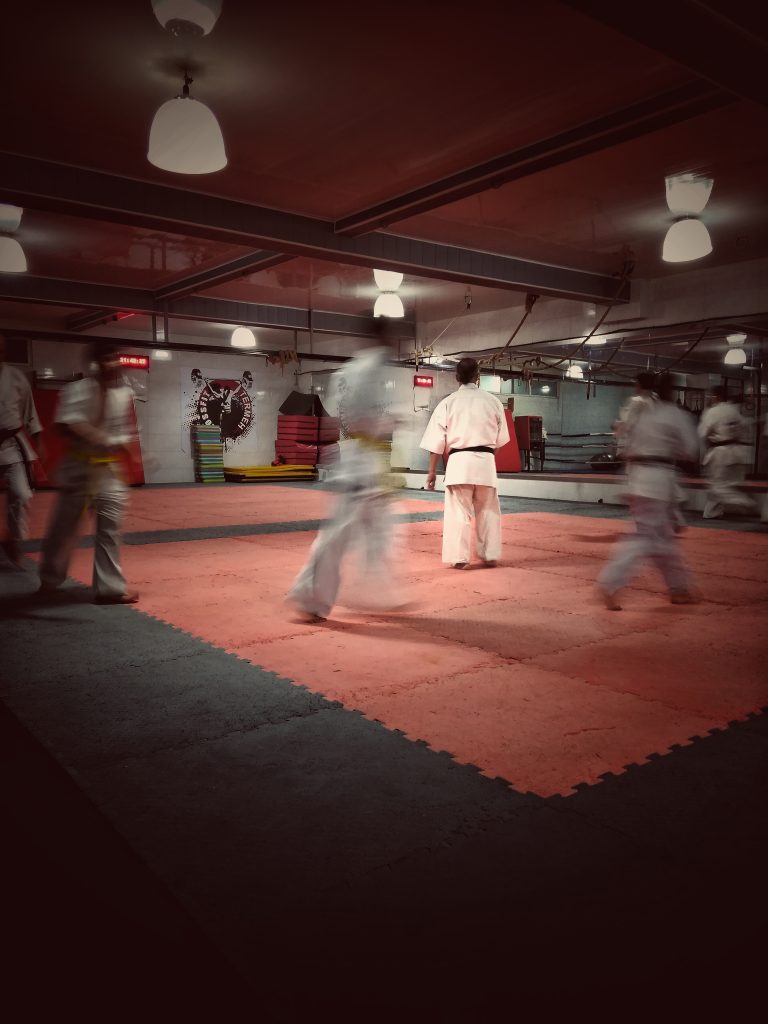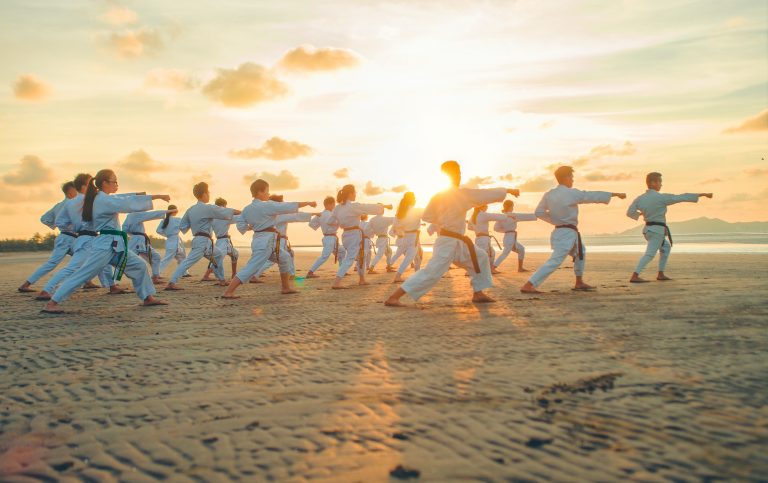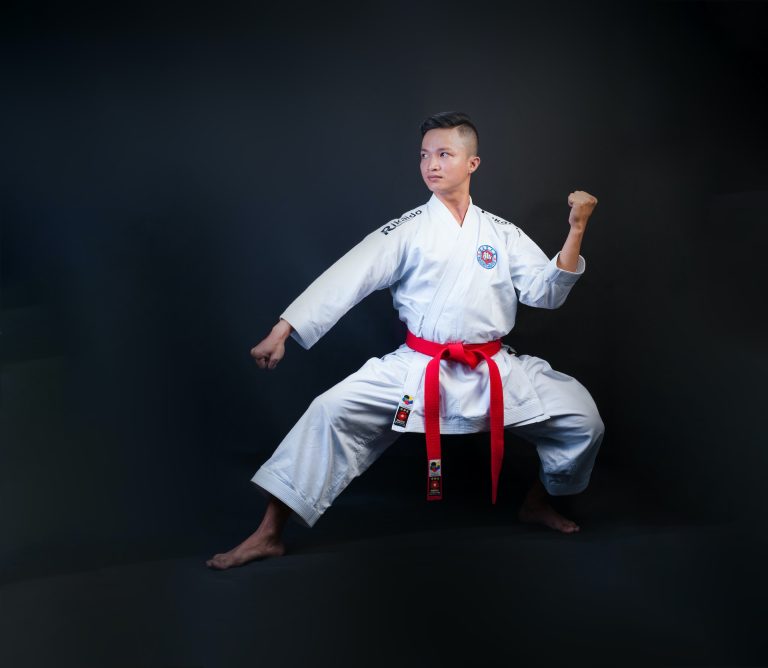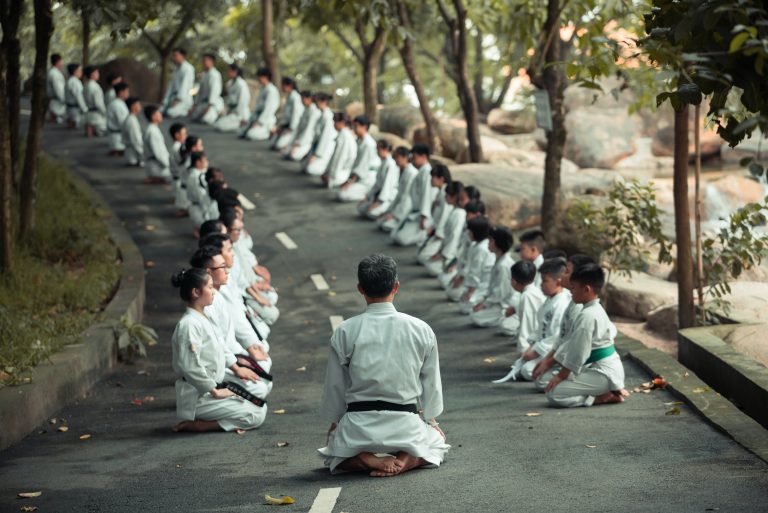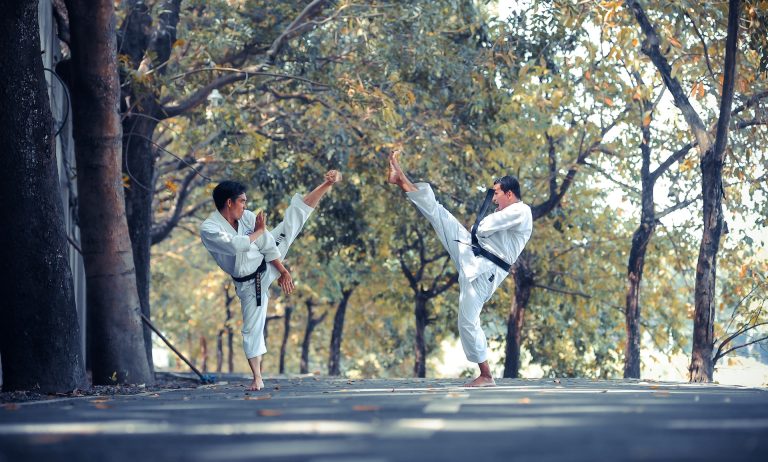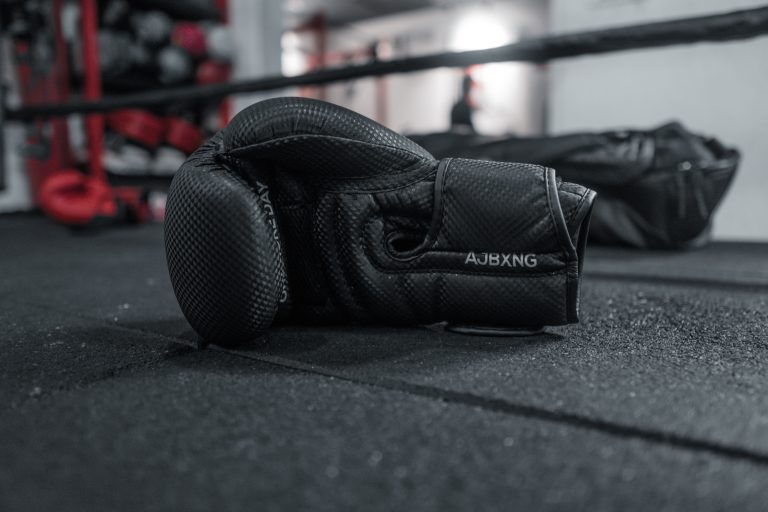Karate Meaning in English
Karate is a martial art that originated in Japan and has become a popular sport and activity worldwide. But what exactly does the word ‚karate‘ mean in English? In this blog post, we will explore the origins of the word ‚karate‘ and its meaning, as well as provide some interesting insights into the history and practice of this martial art.
Origins and Etymology of the Word Karate
The word ‚karate‘ is a combination of two Japanese kanji characters: ‚kara‘ meaning ‚empty‘ and ‚te‘ meaning ‚hand‘. It can be interpreted to mean ‚empty hand‘ or ‚open hand‘, which refers to the fact that karate involves using the hands and feet as weapons rather than relying on traditional weapons such as swords or spears.
The modern form of karate that is widely practiced today has developed from various martial arts forms in Okinawa, Japan. Okinawa was an important trading port and as a result, was influenced by a variety of cultures including Chinese and Southeast Asian. The Okinawan people developed their own form of martial arts known as ‚te‘, which later became known as ‚karate‘.
The Meaning of Karate in Practice
Karate is a sport that involves a combination of striking, kicking, and grappling techniques. Practitioners of karate learn how to use their entire body as a weapon, with techniques that involve punches, kicks, knee strikes, elbow strikes, and open hand techniques.
However, the practice of karate is not just about physical skill and technique; it also involves a strong mental and philosophical component. The principles of karate include respect, discipline, patience, and perseverance. Karate training aims to cultivate a harmonious balance between the mind and body, leading to a sharpened awareness and heightened sense of focus.
The History of Karate
As mentioned earlier, karate originated in Okinawa, Japan. The Okinawan people were skilled in martial arts and developed their own form of fighting known as ‚te‘. Over time, the practice of te spread throughout Japan and became known as ‚karate‘.
In the early 20th century, Japan experienced a surge of nationalism and interest in martial arts. This led to the formation of the All-Japan Karate-do Federation and the promotion of karate as a national sport.
After World War II, karate continued to spread through the efforts of successful practitioners and teachers, known as ’sensei‘. In 1964, karate was featured in the Tokyo Olympics as a demonstration sport, and it became more widely recognized as a sport and martial art throughout the world.
The Different Styles of Karate
Today, there are many different styles of karate being practiced all around the world. Some of the most well-known styles include Shotokan, Goju-ryu, Kyokushin, Wado-ryu, and Shito-ryu.
Each style of karate has its own unique techniques, training methods, and philosophies. However, all styles of karate share the same core values of respect, discipline, and perseverance.
Frequently Asked Questions About the Meaning of Karate in English
Karate is a popular martial art that is practiced by individuals all around the world. It is renowned for its striking moves, defensive techniques, and use of hands and feet as weapons. Many people are curious about the meaning of Karate in English, as well as its history and benefits. Here are some frequently asked questions about Karate that you may find helpful.
1. What does the word ‚Karate‘ mean in English?
Karate is a Japanese word that is comprised of two characters, ‚kara‘ and ‚te‘. ‚Kara‘ translates to ‚empty‘, while ‚te‘ means ‚hand‘. Therefore, the word Karate means ‚empty hand‘ in English.
The ‚empty hand‘ element of Karate refers to the fact that it is a form of self-defense that relies on unarmed combat techniques, rather than weapons. Karate practitioners train to strengthen their body, mind, and spirit, in order to defend themselves using their hands and feet.
2. What is the history of Karate?
The history of Karate goes back centuries and is rooted in Okinawa, Japan. It is said to have originated as a form of unarmed combat by the indigenous people of Okinawa as a way to defend themselves from invading forces.
Over the years, Karate evolved and was influenced by various martial arts styles such as Kung Fu and Jiu-Jitsu. It wasn’t until the turn of the 20th century that Karate was introduced to Japan and eventually spread to other parts of the world.
3. What are the benefits of practicing Karate?
Apart from its effectiveness as a form of self-defense, practicing Karate offers many physical and mental benefits. Karate training requires a great deal of discipline and focus, which helps to develop strong physical and mental traits.
By practicing Karate, individuals develop better coordination, balance, and overall body strength. It is also a great form of cardiovascular exercise, which can help to improve overall health and fitness levels.
In addition, practicing Karate helps to develop greater mental toughness, focus, and self-confidence. These attributes can then be applied to other areas of life, such as work, school, or other pursuits.
4. Is Karate suitable for kids and beginners?
Yes, Karate is suitable for both kids and beginners. In fact, many Karate schools offer classes specifically for young children, starting as young as three or four years old.
Karate is taught in a structured and safe manner, with beginners learning basic movements and techniques before moving on to more advanced forms. It is important for beginners to find a qualified instructor who can guide them through the process and ensure that they are learning proper technique.
5. Do I need any special equipment to practice Karate?
To start practicing Karate, you will need a few basic pieces of equipment, such as a uniform or ‚gi‘, and protective gear like gloves and shin guards. You may also need a training partner or grappling dummy to practice techniques and sparring.
As you progress in your Karate training, you may choose to invest in additional equipment, such as a punching or kicking bag, focus mitts, or a sparring helmet. However, these are not necessary for beginners and can be purchased later on if desired.
6. Can Karate be used in real-life self-defense situations?
Yes, Karate can be incredibly effective in real-life self-defense situations. The techniques learned through Karate training can be used to defend against a variety of attacks, including strikes, grabs, and chokes.
However, it is important to note that the use of Karate techniques in self-defense situations should be a last resort. Karate practitioners should always try to avoid conflict and should only use their skills in a situation where they are in danger and must defend themselves.
Wrapping Up
Karate is a fascinating and effective martial art that offers many benefits to those who practice it. Whether you are interested in learning self-defense skills, improving your physical and mental health, or simply enjoy the challenge of learning a new skill, Karate is a great choice.
If you are interested in learning Karate or have any additional questions about its meaning in English or other related topics, we suggest speaking with a qualified Karate instructor or doing further research. With dedication and practice, the benefits of Karate can be enjoyed by anyone, regardless of age or experience level.
Karate Meaning in English: A Comprehensive Guide
Karate is a popular form of martial art that originated from Okinawa, Japan. It emphasizes quick, powerful strikes and kicks, as well as the use of blocks, evasions, and throws. The word „karate“ in English translates to „empty hand,“ reflecting the style’s focus on unarmed combat. In this guide, we will delve deeper into the meaning of karate in English, its origins, and how to practice it.
The Origins of Karate
Karate’s exact origins are uncertain, but it is believed to have evolved from various forms of martial art practices that originated in Okinawa, China, and Japan. The Okinawan style of karate, in particular, was influenced by Chinese martial arts, such as kung fu, which involved striking and grappling techniques.
In the early 20th century, karate gained popularity in Japan and evolved into various styles, such as Shotokan, Goju-ryu, and Shito-ryu. Today, karate is practiced worldwide, with various organizations promoting different styles and techniques.
The Philosophy of Karate
Karate is not just a physical practice but also a philosophy that emphasizes discipline, respect, and self-improvement. The aim of karate is not to defeat others in combat but to achieve a balance of mind, body, and spirit. Practitioners of karate aim to cultivate traits such as humility, perseverance, and patience, as well as physical fitness and self-defense skills.
The Benefits of Karate
Karate can be a beneficial practice for people of all ages and genders. It can improve physical fitness, coordination, and flexibility, as well as provide a sense of confidence and self-esteem. Moreover, karate can help develop discipline, mental focus, and the ability to overcome challenges, which can be helpful in all areas of life.
How to Practice Karate
If you are interested in practicing karate, there are a few things to keep in mind. First, it is essential to find a qualified instructor who can teach you proper techniques and safety precautions. Look for instructors who have certification from reputable organizations, such as the World Karate Federation or the Japan Karate Association.
Once you have found an instructor, you will need to obtain the necessary equipment, which may include a karate uniform (gi), protective gear, and weapons (depending on the style of karate). You may also need to pay membership fees to join a dojo (karate studio) or organization.
During your karate training, you will learn various techniques, such as strikes, kicks, blocks, and throws. You will also need to practice katas, which are pre-arranged forms that simulate combat situations. Another component of karate practice is sparring, which involves simulated combat with a partner.
Conclusion
In conclusion, karate is a popular and beneficial form of martial art that emphasizes balance of mind, body, and spirit. Karate promotes discipline, self-improvement, and self-defense skills, making it a valuable practice for people of all ages and genders. By finding a qualified instructor and practicing regularly, you can enjoy the physical and mental benefits of karate.
Inhaltsverzeichnis

